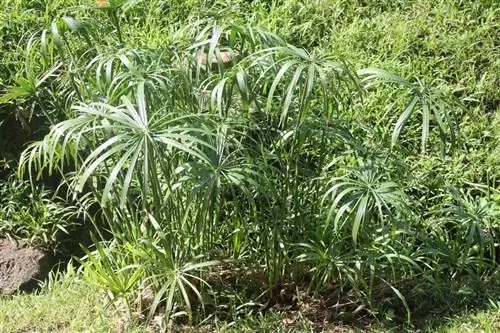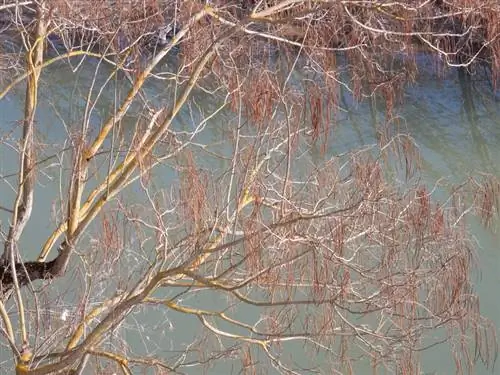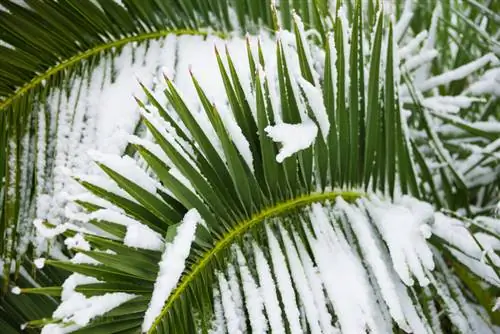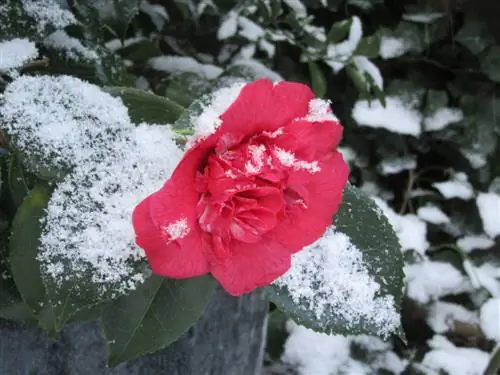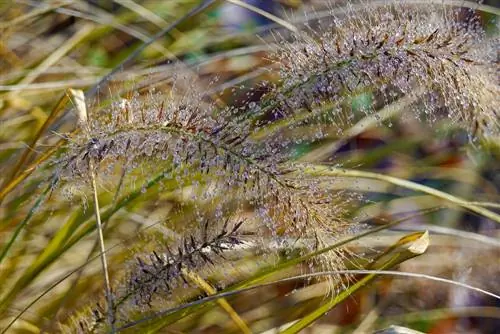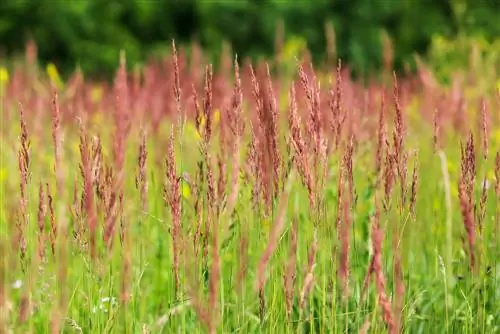- Author admin leonars@hobbygardeners.com.
- Public 2023-12-16 16:46.
- Last modified 2025-06-01 06:02.
Many people know it as a pond plant that will soon become rampant. Others know Cyprus grass as a pot plant or aquarium plant for indoor cultivation. Those who use it as a pond plant should bring it inside in winter
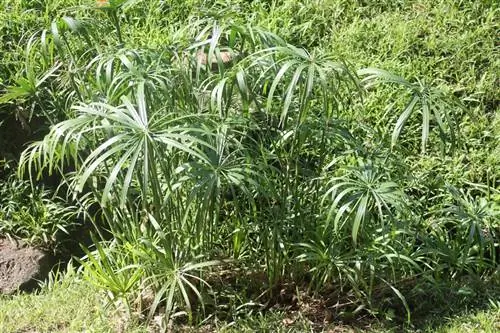
Is Cyprus grass hardy?
Most Cyprus grass species are not hardy and cannot tolerate temperatures below 10 °C. An exception is Cyperus longus, a native Cyprus grass that can tolerate temperatures down to -17 °C in sheltered locations and -12 °C in unprotected locations. For wintering indoors, it should be 15-18 °C and have sufficient humidity.
Even low temperatures damage the Cyprus grass
Even temperatures below 10 °C can cause significant damage to some types of Cyprus grass. The majority of these sour grasses come from the tropical and subtropical zones of the world. There they are not exposed to low temperatures. This meant they could not adapt to temperatures below 10 °C.
Most species cannot tolerate frost at all. They go down as a result. So if your Cyprus grass is outside in the garden pond or in a pot on the balcony, you should bring it in in the fall to overwinter it there.
Cyperus longus - a species that is well hardy
But as almost always in life, there is an exception. This is called Cyperus longus. It is a type of Cyprus grass that is native to this country and for this reason is relatively hardy.
In sheltered locations, this Cyprus grass can tolerate temperatures down to -17 °C. In unprotected locations it can still cope with temperatures down to -12 °C. This species is characterized by fresh green foliage and brownish flowers. She feels in good hands in the pond.
Wintering indoors - where and how?
Wintering is obvious and this is what you need to keep in mind:
- overwinter indoors
- bright space is important
- temperatures between 15 and 18 °C (bedroom, staircase,) are optimal
- well suited: tall glasses, vases, water basins
- Fill the container with water (5 to a maximum of 10 cm high water level)
Care during the winter period
The Cyprus grass needs a little care even in winter. Before you start overwintering, you should shorten your Cyprus grass and remove any wilted parts. You hardly need to fertilize it at all during the winter. It is important that the Cyprus grass is regularly sprayed with water.
Tip
Since Cyprus grass is usually extremely susceptible to pest infestation when overwintered indoors, you should check it regularly in winter for spider mites, thrips and fungus gnats! Brown leaf tips could be the first warning sign.

